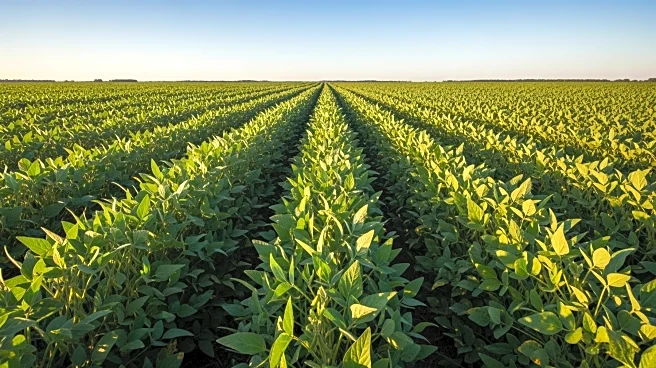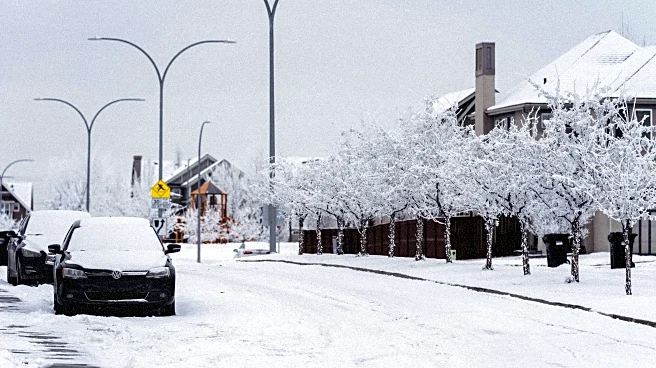What's Happening?
Brazilian farmers, led by figures like Andrey Rodrigues, are ramping up soybean production in response to the ongoing trade conflict between the United States and China. This trade war has resulted in China halting
its import of American soybeans, creating an opportunity for Brazilian producers to fill the gap. China, which previously imported a significant portion of its soybeans from the U.S., is now turning to Brazil to meet its demand. Brazilian soybeans already accounted for over 70% of China's imports last year, and with the current trade tensions, this figure is expected to rise. The Brazilian government reported that 77 million metric tons of soybeans were exported to China between January and August, a substantial portion of the country's harvest.
Why It's Important?
The shift in soybean trade dynamics highlights the broader economic implications of the U.S.-China trade war. For Brazilian farmers, this situation presents a lucrative opportunity to expand their market share in China, potentially leading to increased revenues and growth in the agricultural sector. Conversely, American farmers face significant challenges as they lose access to a major export market, which could lead to financial strain and necessitate finding alternative markets. The trade war underscores the interconnectedness of global trade and the ripple effects that political decisions can have on industries worldwide. The situation also emphasizes the strategic importance of Brazil in the global agricultural market, particularly as a key supplier to China.
What's Next?
As the trade tensions persist, Brazilian farmers are likely to continue increasing production to capitalize on the demand from China. Meanwhile, American farmers may need to explore new markets and diversify their crop uses, such as expanding biodiesel production, to mitigate the impact of lost Chinese sales. The ongoing negotiations between the U.S. and China will be crucial in determining future trade dynamics. Additionally, Brazil's President Luiz Inácio Lula da Silva's diplomatic efforts to strengthen trade ties with China could further solidify Brazil's position as a primary soybean supplier.
Beyond the Headlines
The current trade situation also raises questions about the long-term sustainability of relying heavily on a single export market. While the immediate benefits for Brazilian farmers are clear, there is a risk that changes in Chinese policy or market conditions could impact demand. Furthermore, the environmental impact of increased soybean production, such as deforestation and biodiversity loss, is a concern that may need to be addressed as Brazil expands its agricultural output.










